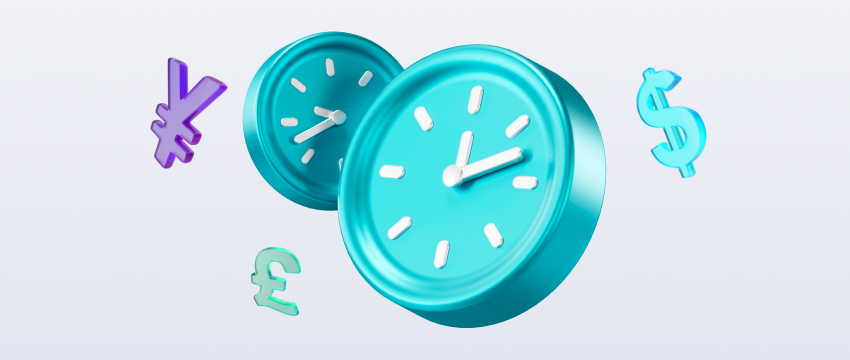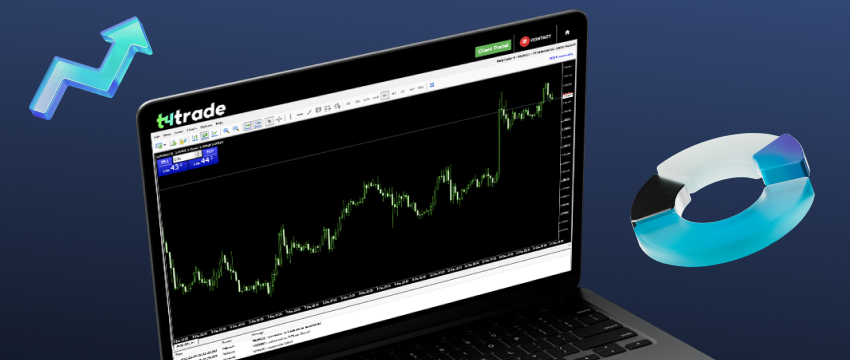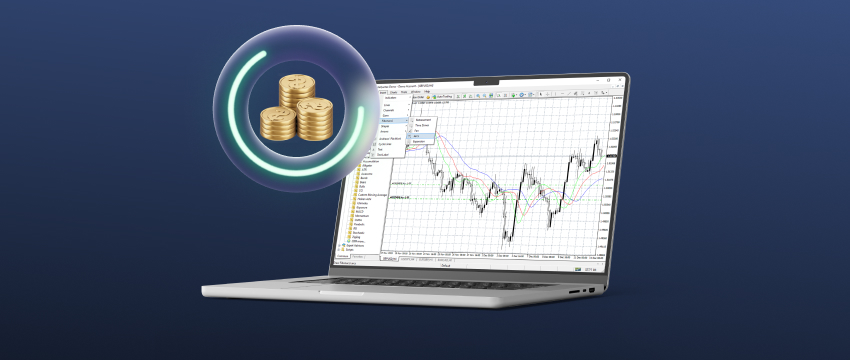Famous forex trading expert Bill Lipschutz is known for saying:
“If most traders would learn to sit on their hands 50 percent of the time, they would make a lot more money.” Lipschutz touches upon a very common mistake made by many forex traders, lack of patience and overtrading. Being patient and waiting for the right opportunity is one of the virtues of good traders.
This is also something echoed by Warren Buffett: “The market is a device for transferring money from the impatient to the patient.” Lack of discipline and patience is very commonly cited as a reason for many traders’ mistakes and disappointments.
A lot of traders who start forex trading are very often overcome by emotions or become frustrated and wonder why this or that trade didn’t work out. And, quite often, most traders tend to share similar experiences and repeat the same mistakes.
According to statistics, up to 90% of new traders lose money by making these common mistakes. In this article, we try to address the most common mistakes forex traders make and ways to avoid them.
No matter what your level of expertise is, knowing what mistakes to avoid will help you in the long run so you can develop a more consistent approach and effective trading plan.
Let’s begin with one of the most common mistakes traders make, which is not having a plan.
No forex trading plan
When overzealous and overexcited traders start trading, they just jump into trading without a second thought, not making a plan and not thinking of what comes next.
Always being ahead and preparing for your next step while knowing your goals, what you want to achieve and with what amount of money is paramount.
Traders need rules and a step-by-step guide, so they focus on a plan and avoid making decisions on the spot out of emotional bias or simply as a reaction to a market event, without clear purpose.
The best way is to develop your own trading plan which should include some basic information:
Your trading goals (daily/weekly/monthly)
- Risk tolerance
- Entry and exit rules
- Position sizing
- Preferred trading pairs
- Timeframes you’re focusing on
- Make sure to stick to your plan and make regular changes based on shifts in market conditions or your research.
Know your pips
One of the most common mistakes forex traders make is not knowing that different currency pairs have different point values (pip). This is something that forex expert and internationally published author of bestselling books, Kathy Lien, also focuses on when she discusses common forex mistakes.
She provides the following example to illustrate the differences in pips in 3 different forex pairs. For instance, when you are trading in forex the EUR/USD, a one pip move at a standard lot which is 100,000 units is worth $10.
But if you are trading a currency pair such as the EUR/GBP, the same one pip move is worth around $13, 30% more, while a one pip move for a pair like EUR/JPY could be worth less than $6.
While such differences may appear to us as quite insignificant, when trading big positions or very frequently, they can have an important effect on your profit or loss and impact your risk management plan.
For this reason, it is good practice to check the pip value of the currency pair you’re forex trading and understand that this could have an important effect on your potential returns and risk management. You can use T4Trade’s pip calculator to help you manage your trades and costs better.

Forex trading leverage? What leverage?!
Everyone who has fallen victim to the power of leverage had probably ignored the way leverage works. Leverage in forex can boost your returns but also increase your losses.
With many brokers these days offering flexible leverage up to 1:500 or 1:1000, it is easy for traders to overleverage and misuse it, experiencing significant losses, especially in volatile markets.
If you’re unsure about how much leverage to use, start small. Test how your trades respond and decide if leverage works for you. Use risk management tools like stop loss orders to protect your position. This way, you won’t risk more than 1 or 2% of your account on a single trade.
Currency pair volatility
Before trading, traders need to ensure they understand the difference between different pairs and how some currency pairs are more volatile than others. For example, GBP/JPY and EUR/AUD are especially volatile pairs, whereas the EUR/USD is a more stable pair.
Knowing how volatile a pair is helps traders decide how long to let a trade run. It also guides when to take profits, where to place a stop loss, or how to adjust position size to avoid bigger losses.
If you trade a volatile pair and face big swings, you could incur large losses. This happens if you lack proper risk management or don’t adjust your position size correctly.
The same applies to pairs with high volatility. You may not reach your profit target if you don’t adjust your position. Always make sure your strategy matches the currency pair you’re trading. Consider the volatility you might face, so you can avoid surprises.
Choose the right time of day to forex trade
The forex market is open 24 hours a day. But not all hours are ideal for making good trades. Currency pairs react differently depending on the time of day. The market is especially quiet from 4 to 7 pm in New York. This happens because the US markets are closed, and the Asian markets haven’t opened yet.
With limited trading activity and price ranges narrow, this is not an ideal time to trade. The best hours to trade are during the London-New York overlap, the most active period with high global trading volume.
Knowing the best hours to trade is important. It helps traders avoid entering trades during inactive sessions. Inactive sessions often have low liquidity. Low liquidity can lead to low and unpredictable volatility.
Feeling angry? Avoid trading!
We have all heard about traders indulging in so-called revenge trading. Maybe we’ve experienced this ourselves—losing a trade, trying to recover it, and falling into overtrading with impulsive decisions.
In such cases, traders should pause and avoid placing a trade. Instead, they should analyse what went wrong and how to stop it from happening again.
Accepting a bad trade or your loss is not a defeat. It’s a clever move that can save you from bigger losses later. Once you regain your composure and can think clearly, review your mistake. Make a note, analyse the situation, and make sure to avoid it next time.

I want it all, right now!
We began this article about patience, and indeed, impatience is a common emotion experienced by many traders. The forex market is volatile, numbers are quickly flickering on your screen and everyone is trading around you.
You may feel the urge to trade quickly, make fast gains, and prove to other traders that you can do it too. However, trading is a game of patience rather than impatience. The wisest traders don’t think about quick money, but carefully consider their trades and what they might lose.
Enter the right trades at the right time and avoid trading all the time. Be patient. Follow your plan. Focus on the right opportunities. This will help you trade longer and achieve more consistent results. And if you do experience mistakes, which are inevitable, remember, as Bruce Kovner said,
“If you personalise losses, you can’t trade.” Keep an open mind and don’t criticise yourself too much. Losses do happen, and not everything is under your control. Manage those things you can control and accept the losses without taking them personally. And most importantly, enjoy the journey.
Khước từ trách nhiệm: This material is for general informational and educational purposes only and should not be considered investment advice or an investment recommendation. T4Trade is not responsible for any data provided by third parties referenced or hyperlinked in this communication.




